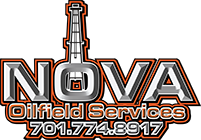Keeping oilfield equipment in top shape is more important than ever. Equipment reliability ensures that operations run smoothly and efficiently, minimizing downtime in the demanding landscapes of the oilfields. In places like Williston, North Dakota, where the environment can be harsh and unpredictable, this reliability becomes a lifesaver. Equipment rentals have become a popular choice for many due to their flexibility and cost-effectiveness. They offer quick solutions without the burden of owning and maintaining an entire fleet.
In Williston, the need for robust and efficient equipment looms large. The local conditions, characterized by changing weather and challenging terrains, push equipment to its limits. Renting equipment offers the advantage of using the most suitable machinery for specific tasks while ensuring minimal disruptions. This approach allows businesses to focus on what they do best, meeting project goals efficiently, even when faced with unforeseen challenges. However, like all machinery, rented equipment can face issues. Understanding how to troubleshoot these problems is key to maintaining productivity.
Equipment Failure
Equipment failures can halt work quickly, causing delays and increasing costs. Identifying the root causes of these failures is essential to getting things back on track. Common problems include mechanical wear, incorrect use, and environmental factors that stress machinery more than usual.
To troubleshoot effectively, begin with these key steps:
– Visual Inspection: Before operating, regularly check the equipment for visible signs of damage. Look for any leaks, loose parts, or unusual wear on components.
– Listen to Sounds: Unusual noises often signal underlying issues. A sudden clang or whirring sound might indicate a problem with the engine or moving parts.
– Monitor Performance: Keep an eye on how the equipment behaves under load. Sluggish performance or difficulty in starting might need attention.
Prevention is always better than cure. Establishing a routine for regular maintenance can mitigate the risk of failure. This practice includes routine oil checks, cleaning, and testing components to ensure everything functions optimally. Prompt action and awareness help to tackle challenges efficiently, keeping the work environment safe and productive.
Hydraulic System Issues
Understanding hydraulic systems can help keep your equipment in good working condition. These systems rely heavily on the proper flow and pressure of fluids, which can be disrupted by leaks, contamination, or blockages. When hydraulic problems arise, they can cause everything from slow operation to complete machine failure.
To manage hydraulic issues efficiently, consider these steps:
– Check for Leaks: Inspect hoses and connections for any signs of fluid leakage. Leaks often indicate worn seals or damaged hoses that need replacing.
– Fluid Levels and Quality: Always maintain the correct fluid levels. Low fluid can affect system performance. Contaminated fluid might indicate internal wear or external contamination.
– Pressure Testing: Use a pressure gauge to ensure hydraulic pressure is within the recommended range. Low pressure might suggest internal leakage or pump failure.
Regular maintenance of hydraulic systems ensures they function smoothly. Change the hydraulic fluid as recommended and check filters regularly to avoid any potential problems.
Electrical Problems
Electricity is another key element in the operation of oilfield equipment. Electrical problems can manifest as anything from non-start conditions to erratic operation. Understanding these issues can help prevent major equipment downtime.
Here’s how to address electrical problems:
– Inspect Cables and Connections: Ensure that all cables and connections are secure and free of corrosion or fraying.
– Test Battery Health: Regularly check the battery’s condition and charge. A weak battery can cause starting issues or affect electronic functions.
– Monitor Warning Lights: Pay attention to any warning lights on the equipment’s control panel. They often provide clues about underlying electrical issues.
Addressing these issues promptly can prevent them from escalating into larger problems. Keeping a simple electrical toolkit handy can make resolving minor issues easier and avoid unnecessary delays.
Preventive Maintenance Tips
Preventive maintenance plays a huge role in keeping equipment healthy. Establishing a routine can significantly decrease the chance of unexpected failures.
Consider these maintenance practices:
– Daily Checks: Conduct quick inspections each day before use. Look for fluid levels, tire pressure, and visible damages.
– Weekly Maintenance: Dedicate some time weekly for deeper inspections. This includes checking all mechanical parts, cleaning air filters, and testing controls.
– Schedule Regular Check-Ups: Having professional check-ups frequently can detect problems early before they become costly repairs.
Staying proactive with maintenance can extend the life of the equipment and enhance its efficiency. It’s a small investment that yields significant returns by ensuring smooth operations.
Keeping Equipment Ready
Focusing on regular checks and understanding potential issues aids in keeping your oilfield equipment running at its best. Each piece of equipment represents a crucial part of your operation, and keeping it in optimal shape secures your work’s pace and quality.
Overcoming mechanical challenges in the unpredictable environment of oilfields is essential. While occasional failures are inevitable, a strong routine for troubleshooting and maintenance can mitigate their impact effectively. Embrace a proactive approach, and you’ll have machinery ready to face the next task confidently.
To keep your operations running smoothly in Williston’s challenging conditions, having reliable equipment is crucial. Learn how oilfield equipment rentals from Nova Oilfield Services can help you stay productive and handle any challenges that arise. With a range of options available, you can select the right machinery for your needs, ensuring efficiency and success in your projects.








